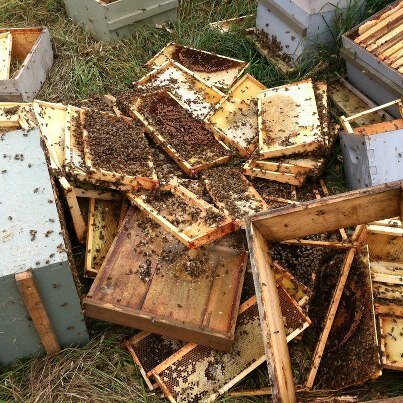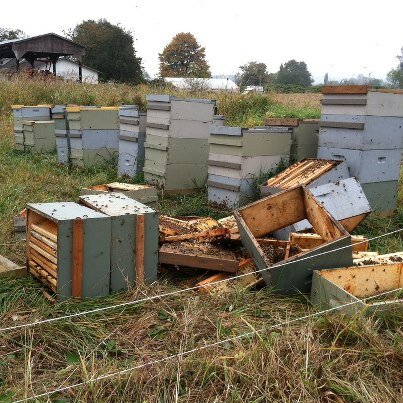People go a little crazy about bees — and why wouldn’t you? Bees are wonderful to bang on about. Even the Port of Seattle loses its mind a little in welcoming some honeybee hives: “They’re just like us!”
Air traffic controllers at Sea-Tac direct an average of 850 planes each day, transporting 33 million people and 283,500 metric tons of cargo a year. Honeybees also rely on efficient operations, each hive logging up to 200,000 flights a day and requiring visits to two million flower blossoms to generate one pound of honey.
Like planes, bees have wings, fuselages and landing gear. They use terminals, runways, and complex navigation and communication systems. Bees transport cargo from a hub to the home port.
Sea-Tac airport is surrounded by acres and acres of “buffer” habitat — when the Port added a third runway, they also planted 158,000 native plants as part of an environmental remediation effort. No one lives, or is allowed to hang out, there for safety reasons. So that’s where six honeybee hives will sit at three different sites. (When people turn to you, alarmed by headlines that seem to indicate the bees are in the airport, you can set them straight.) There, they will engage in typical bee activities, like pollinating plants, making honey, and waggling their bee-butts at each other. Total one-year cost to the Port? $500.
The project is called “Flight Path,” and is a collaboration with The Common Acre, the Port, and the Urban Bee Company: “We look to the hive as both inspiration and hub.” UBC maintains a number of apiaries in community gardens and provides beehive hosting, which in Seattle is an in-demand service. They’re fully booked for 2013 and taking orders for 2014. They will also deliver honey to Seattle doors by bike. (Ballard Bee Co., which has hives in the rooftop garden on top of Bastille, also has a hive hosting program.)
The Common Acre people see this — wait for it! — as a pilot project, since airports all across the country have these buffer areas. (Chicago’s O’Hare already has a two-year-old apiary.) And, all across the country, bees are fighting to find habitat that isn’t someone’s backyard or choked with pesticides. They have plans for a bee art and educational exhibit (including video footage of the hives) on Sea-Tac’s concourse B, with works from local artists Mandy Greer, Jason Puccinelli, David Lasky, Celeste Cooning, and more. Look for it beginning January 2014.
To be assured of all this happening, look for their Kickstarter page right now, where they want to raise $16,500 by August 1. So far, they’ve got $200, so your support will be greatly appreciated.




